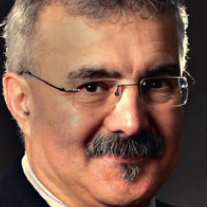Calvin’s atrocities?
‘The past is a foreign country; they do things differently there’.

This famous first line by L.P. Hartley (1895–1972) in his novel The Go-Between (1953) has long been a favourite maxim that orients my teaching of history, for it is notoriously difficult to treat former eras of history with the degree of empathy that they need to make them understandable.
Servetus
A classic example is afforded by what has been called the Servetus Affair in Geneva in 1553, when John Calvin (1509–1564) was embroiled in the trial and execution by burning of Michael Servetus (c.1511–1553), who was adamant in his denial of the Trinity. Calvin’s involvement in this gruesome incident has given rise to his posthumous reputation as a bloody tyrant who ran Geneva like a gulag.
Calvin could certainly be vicious in his verbal attacks on those whom he regarded as heretics and his theological opponents, but there is no evidence that he regularly sought to kill them. Thus, theologians who crossed swords with Calvin in Geneva – men like Jérôme-Hermès Bolsec (d.1584) and Sebastian Castellio (1515–1563) – were exiled from the city. Moreover, it is vital to note that most 16th-century Christian figures, both Protestant and Roman Catholic, regarded heresy not simply as a wrong-headed intellectual pathway, but as imbued with ‘the stigma of moral corruption’ and, as such, it had to be cut out of the body politic lest it pollute the entire community (Bruce Gordon, Calvin, pp. 217-8). If the Genevan authorities had let Servetus live once he had been recognised and arrested in the city, it would have given the enemies of the Reformation, notably the Roman Catholic Church, proof that the Reformers were also heretics for tolerating such heresy.
Limited power
Moreover, Calvin’s political standing in Geneva was still tenuous in the early 1550s. Many of the city’s patricians looked askance at the French Reformer and would have been all too happy to boot him out, as they had once done in 1538 (Kenneth Stewart, Ten Myths About Calvinism, p.188). In fact, one of Calvin’s co-Reformers, Wolfgang Musculus (1497–1563) was convinced that Servetus had come to Geneva on purpose to exploit the differences between Calvin and the city council. Although Calvin’s ‘visceral hatred of Servetus was all too clear’ during the 1550s (Gordon, Calvin, p.224), he simply did not have the power to execute the heretic. The charge by the 19th-century author J.B. Galiffé, noted recently in a letter to the editor of this paper, that Calvin was a ‘tyrant priest who submitted Geneva to the most infamous servitude’ is patently wrong, failing as it does to understand the severe limitations on Calvin’s political power.
There were indeed others who were put to death during Calvin’s ministry in Geneva. During an outbreak of the plague in Geneva during 1544–1545, some 38 men and women were accused of aiding its spread and subsequently executed for what we would call bio-terrorism today. Calvin appears to have believed this charge about these 16th-century bio-terrorists, who were accused of smearing plague-contaminated ointment on the keyholes of Genevan houses (see his letter to Oswald Myconius, March 27, 1545)!
Threat to life
One other execution was that of Jacques Gruet in 1547, a materialist who may also have been an atheist. He was executed not for his beliefs, though, but for threatening the life of Calvin and seeking to instigate a coup in the city. Not surprisingly, the numbers of those executed in Geneva during Calvin’s time were exaggerated by his enemies, exaggerations that were bandied about especially in the 18th and 19th centuries when Calvinism (a word that Calvin loathed) was often a house under attack.
Now, the goal of this month’s column is not to whitewash Calvin. In his own day, Castellio rightly remonstrated with Calvin concerning the execution of Servetus. The state has no biblical mandate, under the new covenant, to execute heretics. Rather, what Calvin actually did and did not do needs to be set forth as well as understanding those actions in the context of his times. Moreover, it goes without saying, in the opinion of this author, that the truly blameworthy aspects of Calvin’s life noted above do not lessen some of the vital truths that can be learned from his life and witness, which were set forth with regard to one area, that of missions, in this column last year.
Michael Haykin is Professor of Church History and Biblical Spirituality at Southern Baptist Theological Seminary, Louisville, Kentucky.



